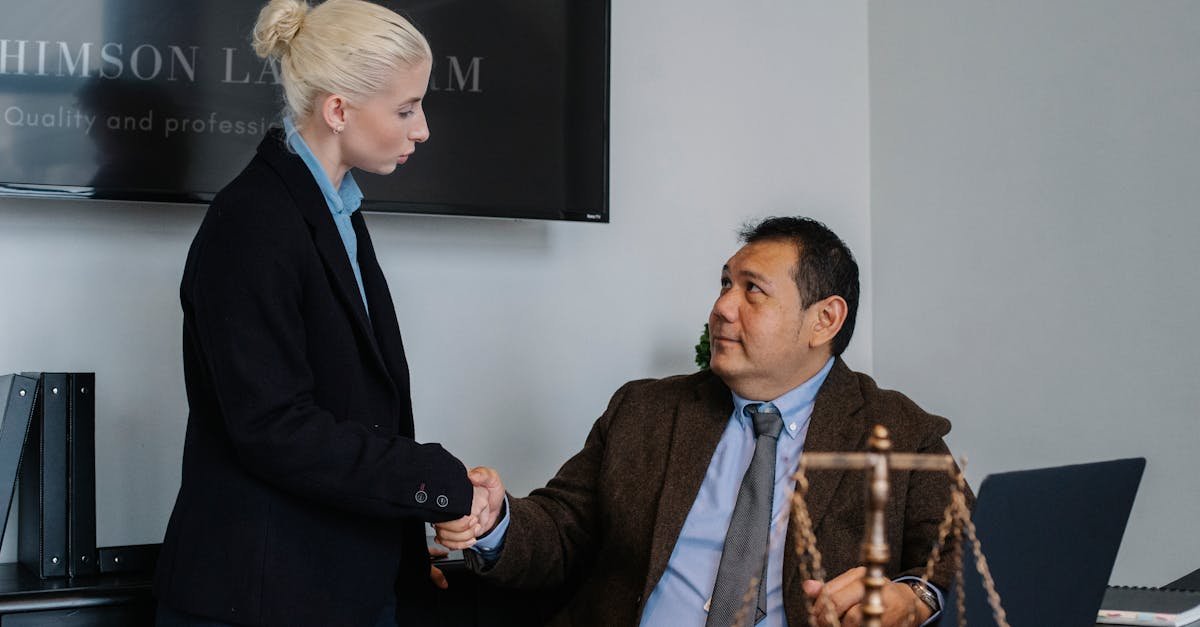
The Role of Expert Witnesses
Expert witnesses play a pivotal role in malpractice cases by providing specialized knowledge that helps clarify complex medical issues. The insights they offer can significantly influence the jury’s understanding of whether a standard of care was breached. These experts often have extensive education and clinical experience in the relevant field, allowing them to testify about what is considered reasonable practice among professionals. A malpractice lawyer will typically seek to identify witnesses who can effectively communicate these nuances, which can be critical in establishing the validity of the claim.
The quality and credibility of expert witnesses can also shape the outcome of a case. Malpractice lawyers often face the challenge of finding the right professionals who not only possess the requisite qualifications but can also present their testimonies in a compelling manner. Jurors often look to these experts as authoritative figures, making their testimonies a key component in the adjudication of malpractice claims. The absence of a strong expert witness can weaken a case substantially, making it essential for attorneys to invest time and resources in securing reliable and persuasive testimony.
Qualifications and Impact on Cases
Expert witnesses play a pivotal role in malpractice cases, providing critical insights that can determine the outcome of a claim. Their qualifications are vital; they must possess relevant experience and credentials in the specific field related to the alleged malpractice. A well-regarded expert witness can lend significant weight to a case. Their opinion often helps clarify complex medical or professional practices, making the information more accessible to a jury.
The impact of expert witnesses on malpractice litigation cannot be overstated. A malpractice lawyer relies heavily on these professionals to establish the standard of care and demonstrate how the defendant deviated from it. The presence of a credible expert witness can bolster the credibility of the plaintiff’s claims while helping to challenge the defenses put forth by the defendant. This dynamic often shapes the direction of the case, influencing both settlement discussions and trial outcomes.
Common Defenses Against Malpractice Claims
Defending against malpractice claims involves a variety of strategies that aim to challenge the validity of the allegations. One common defense is contributory negligence, which argues that the plaintiff played a role in their own harm. This tactic can significantly reduce or eliminate liability if evidence shows that the patient did not follow medical advice or did not disclose relevant information to the healthcare provider. A skilled Malpractice Lawyer will often emphasize these behaviors to shift some blame back onto the plaintiff, illustrating that the outcome was not solely a result of the provider’s actions.
Another important defense involves demonstrating adherence to the accepted standards of care within the profession. A healthcare provider may present evidence that their actions were consistent with what a reasonable practitioner would have done in similar circumstances. Expert testimony is instrumental in establishing these standards, and a competent Malpractice Lawyer will seek to gather credible witnesses who can affirm the provider’s compliance. This defense highlights the complexity of the medical field and reinforces the notion that not every negative outcome equates to negligence.
Contributory Negligence and Other Strategies
Contributory negligence poses significant hurdles in medical malpractice cases. If a patient is found to have played a part in their own injury, it can dramatically diminish or completely eliminate their ability to recover damages. A malpractice lawyer often emphasizes the importance of documenting patient compliance with medical advice, as failing to follow treatment recommendations can be used to argue contributory negligence. Establishing the degree of responsibility between the healthcare provider and the patient becomes critical in these instances.
Defendants in malpractice cases frequently employ a range of strategies to counter allegations. Shifting the blame onto the patient through claims of contributory negligence is a common defense. In addition, a malpractice lawyer might argue that the standard of care was met, relying on expert testimony to support their position. These approaches can complicate the litigation process, as both parties must present compelling evidence to substantiate their claims and defenses. The interplay of these factors underscores the complexity involved in proving malpractice.
Jurisdictional Variations in Malpractice Law
Malpractice laws can vary significantly from one jurisdiction to another, influencing how cases are approached and resolved. Different states have unique statutes concerning the standard of care, damage caps, and the overall burden of proof required for a claim to succeed. These variations can create complexities for both plaintiffs and defendants. A malpractice lawyer must remain well-versed in the specific legal requirements pertinent to the jurisdiction where a case is filed, as this knowledge can substantially impact the trial’s strategy and outcome.
Additionally, some states allow for more leniency regarding interpretations of negligence, while others maintain stricter guidelines. Learning about the jurisdiction’s stance on issues like comparative negligence and informed consent is crucial. A skilled malpractice lawyer navigates these nuances effectively to build a compelling case. Jurisdictional differences also affect the timelines for filing claims, which can determine whether a case can be pursued in the first place. Understanding these local intricacies is essential for anyone considering legal action in the realm of malpractice.
How State Laws Affect Prosecution
State laws play a critical role in shaping the framework for malpractice claims. Variations in statutes across jurisdictions can influence the type of evidence required and the burden of proof needed to establish negligence. Some states implement damage caps that limit the compensation a plaintiff may receive, which can deter certain claims from being pursued. The specifics of the law can also dictate the timeline for filing a suit, creating additional hurdles for those seeking justice.
A malpractice lawyer must navigate these variations carefully to develop a viable case for their client. Understanding the nuances in local laws enables them to craft a strategy that aligns with the jurisdiction’s requirements. Different states may also have specific rules regarding expert witness qualifications, which can impact the ability to substantiate claims against medical professionals. Knowledge of these regulations is essential for effectively advocating on behalf of clients and ensuring that their cases are presented with the strongest possible foundation.
FAQS
What are the main elements of a malpractice claim?
The main elements of a malpractice claim typically include duty, breach of duty, causation, and damages. Each element must be proven for a claim to be successful.
Which element of malpractice is hardest to prove?
The hardest element to prove in a malpractice case is often causation. Establishing a direct link between the professional’s actions (or inactions) and the harm suffered by the plaintiff can be complex.
How do expert witnesses contribute to proving malpractice cases?
Expert witnesses provide specialized knowledge and opinions that can clarify whether the professional acted according to the standard of care. Their testimony is crucial in establishing whether a breach of duty resulted in harm.
What defenses do professionals commonly use against malpractice claims?
Common defenses include contributory negligence, which argues that the plaintiff’s own actions contributed to their harm, and the assertion that the professional met the accepted standard of care.
How do jurisdictional variations affect malpractice cases?
Jurisdictional variations can influence the laws and standards governing malpractice claims, including statute of limitations, requirements for expert testimony, and the burden of proof, which can impact the prosecution of a case.





